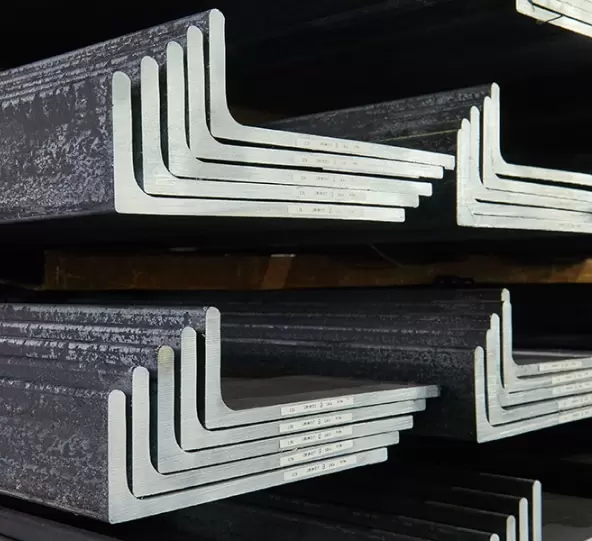Inverted Angle Steel: Enhancing Structural Integrity in Marine Engineering
In marine engineering, materials selection plays a crucial role in ensuring the durability, safety, and overall performance of various marine structures. From shipbuilding to offshore oil platforms, each component must withstand extreme conditions such as saltwater corrosion, high mechanical stresses, and fluctuating temperatures. One such material that has become essential in this industry is inverted angle steel. This unique structural component has proven to be invaluable in a variety of applications, offering both strength and versatility. In this article, Longteng will explore the advantages of inverted angle steel in marine engineering.
What is the Inverted Angle Steel?
Inverted angle steel, often referred to as reversed angle steel or upside-down angle steel, is a type of structural steel that features two legs of unequal lengths forming an "L" shape. Unlike conventional angle steel, where the shorter leg is positioned at the top and the longer leg at the bottom, inverted angle steel is designed with the longer leg positioned at the top. This design gives inverted angle steel unique load-bearing capabilities, making it ideal for various structural applications in the harsh environment of marine engineering.
Main Advantages of Inverted Angle Steel in Marine Engineering
Increased Load-Bearing Capacity
Inverted angle steel is designed to bear greater loads than conventional angle steel due to its reversed configuration. This allows engineers to use lighter sections of steel while achieving the same or greater load-bearing capacity, which is essential in marine applications where weight reduction is critical. The design helps optimize material use, reducing the overall cost of construction without compromising the safety and stability of the structure.
Improved Resistance to Environmental Stress
The combination of strength and flexibility offered by inverted angle steel makes it resistant to a wide range of environmental stresses. Marine structures, such as ships and offshore platforms, are constantly exposed to mechanical stresses from waves, currents, and heavy machinery. Inverted angle steel’s resistance to bending, torsion, and shear forces ensures that these structures remain intact even under extreme conditions. Additionally, inverted angle steel can be treated with protective coatings or alloys that enhance its resistance to saltwater corrosion, further extending the lifespan of marine structures.
Cost-Effectiveness and Efficient Construction
Incorporating inverted angle steel into marine engineering projects can result in cost savings and more efficient construction. Due to its lightweight nature and high load-bearing capabilities, engineers can reduce the amount of material used in the design and construction of marine structures. The material’s durability and ease of maintenance also mean that the long-term costs associated with repairs and replacements are minimized. Furthermore, the versatility of inverted angle steel means that it can be used in a variety of structural configurations, enabling faster construction and reducing the need for custom materials or excessive fabrication.
Inverted angle steel has proven itself to be an invaluable material in the field of marine engineering. From shipbuilding to offshore oil rig construction, its unique design offers a combination of strength, stability, and corrosion resistance that is crucial in marine environments. Whether used in the hulls of ships, offshore platforms, or marine bridges, inverted angle steel enhances structural integrity, optimizes material usage, and ensures long-term durability.
The continued use of inverted angle steel in marine engineering represents a key innovation that helps address the challenges posed by the harsh marine environment, contributing to the safety, efficiency, and sustainability of modern marine infrastructure. Its role in reinforcing critical structures cannot be overstated, and its benefits will continue to make it a fundamental material in the construction and maintenance of marine engineering projects around the world.
https://www.lttgsteel.com/Section-Steel/Inverted-Angles.html
www.lttgsteel.com
Jiangsu Longteng Special Steel Group
